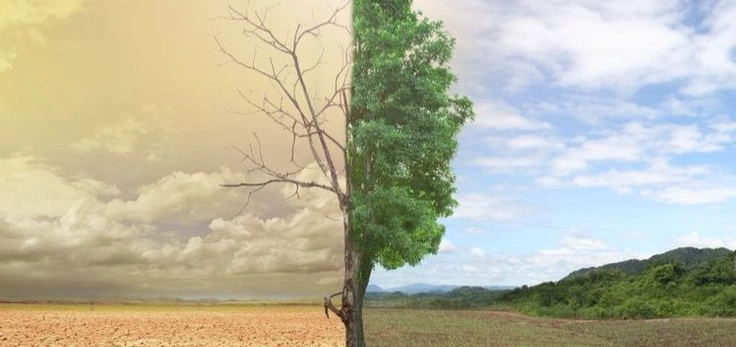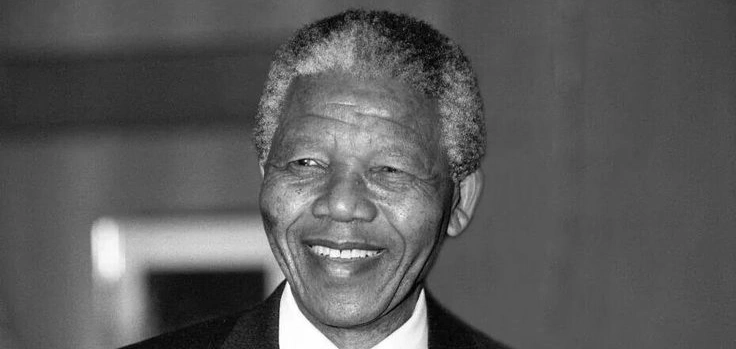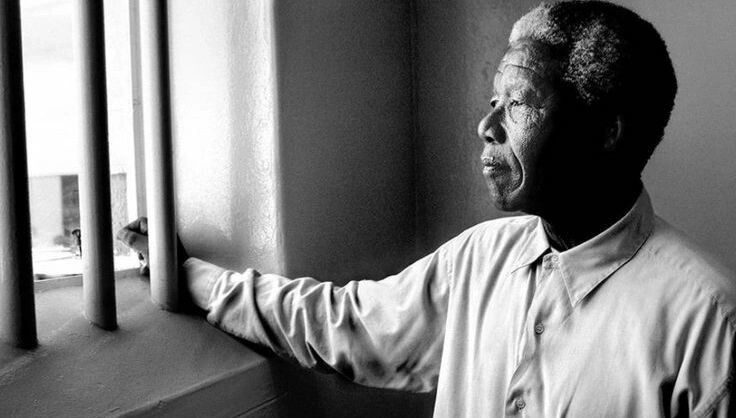Life Lessons Posts on Crowch
The modern world teaches us to move fast. Do more. Earn faster. Keep learning. Build your career, grow your brand, update your resume, stay visible. But the faster we run, the more often we find ourselves feeling empty. Where are we rushing — and why?
The world may be accelerating, but the human mind is still wired for rhythm, not chaos. We are not machines. We are not built for endless momentum without pause. Our internal resources — focus, energy, inspiration — are not infinite. Yet we’ve learned to ignore fatigue. We fear slowing down: afraid we’ll lose momentum, relevance, or our place in the race. And that’s the trap.
More and more people today are realizing that old models of success are failing. Growth for growth’s sake, income for metrics, busyness as identity — these patterns leave us exhausted, anxious, and numb. We look successful on the outside, but feel disconnected within.
Rethinking success begins with slowing down.
To slow down doesn’t mean to quit. It means creating space to think — not just produce. To return to essential questions:— What actually matters to me?— Where do I draw meaning, not just motivation?— What pace is truly mine — not what’s imposed?

We often fear being “slow” in a culture obsessed with speed. But it is in slowness that depth is born: ideas, relationships, insights, honesty. Everything real takes time. Speed is for consuming. Creation is slow.
Real strength today isn’t in acceleration. It’s in choosing your own rhythm. It’s in pausing, saying no, noticing, feeling, being fully present. Success isn’t a timeline. It’s a resonance between what you do and who you are.

Sometimes, to return to yourself, you just have to stop.Not to fall behind — but not to lose yourself.
Climate change refers to long-term alterations in temperature, precipitation, and other atmospheric conditions. While natural factors contribute, recent decades have seen human activity become the dominant driver—through burning fossil fuels, deforestation, and industrialization. As global temperatures continue to rise, the consequences are already being felt across the world.
Climate change is manifesting through extreme weather events—more frequent droughts, floods, wildfires, and hurricanes. Sea levels are rising due to melting polar ice, threatening coastal regions and island nations. Precipitation patterns are shifting, freshwater resources are diminishing, and agriculture faces increased stress, endangering food security. In vulnerable regions, climate disruption deepens poverty, accelerates migration, and fuels instability.
Ecosystems are particularly sensitive. As species struggle to adapt to changing environments, biodiversity loss accelerates. Coral reefs are among the earliest casualties of ocean warming, triggering a ripple effect throughout marine food chains. This biodiversity decline weakens ecosystems and their ability to absorb carbon dioxide.

Mitigating climate change demands urgent and collective action. Greenhouse gas emissions must be cut, renewable energy adopted, sustainable technologies developed, and consumer habits transformed. Global cooperation is essential: climate summits, like the Paris Agreement, must be followed by concrete commitments and effective enforcement.
Individuals also have a role to play: using energy-efficient appliances, reducing waste, consuming mindfully, and supporting climate-focused policies and initiatives. The future of our climate depends on the decisions we make today—in government halls, corporate boardrooms, and everyday homes.

27 years in prison. Not for violence. Not for crime. But for a dream — of a nation where skin color didn’t define destiny.
Under apartheid, South Africa was torn by systemic racial oppression. Nelson Mandela, lawyer, activist, and co-founder of the ANC’s armed wing, fought for the freedom of his people — and paid with his freedom.
But what truly made him extraordinary was not just his struggle — it was his forgiveness.
Released in 1990, Mandela could have called for revenge. But instead, he chose peace. In 1994, he became South Africa’s first Black president — and used his power not to divide, but to heal.
“No one is born hating another person... If they can learn to hate, they can be taught to love.”
Mandela led with wisdom, humility, and grace. He created the Truth and Reconciliation Commission — to allow wounds to be spoken and healed, not buried. He embraced former enemies, taught unity, and showed that strength is measured not by dominance, but by dignity.
His legacy lives on — not just in South Africa, but in every place where peace is chosen over revenge.


Long before he became a symbol of peace and perseverance, Nelson Rolihlahla Mandela was a young boy herding cattle in the rural village of Qunu. Raised in the Xhosa tradition, he was taught values of respect, responsibility, and resolve. But the laws of apartheid South Africa would not respect those values — they would suppress them, reducing Black citizens to second-class status in their own homeland.
Mandela’s journey to resistance began in the courtroom. Trained as a lawyer, he believed that change could be achieved through legal means. But as the apartheid regime tightened its grip — banning political activity, silencing dissent, and enforcing racial separation with brutal efficiency — Mandela and others in the African National Congress came to a painful conclusion: peaceful protest alone was not enough.
In 1961, Mandela helped co-found Umkhonto we Sizwe (“Spear of the Nation”), the ANC’s armed wing, committing acts of sabotage against government infrastructure — never targeting people — in an effort to wake the world to South Africa’s injustice. For this, he was arrested, tried, and sentenced to life imprisonment.
He would spend 18 of those 27 years on Robben Island, confined to a small cell, breaking rocks in a limestone quarry. But the prison bars could not contain his influence. He became a symbol of moral resistance, a figure whose name was whispered across continents — on university campuses, in protest songs, and within the chambers of the United Nations. “Free Nelson Mandela” became not just a slogan, but a demand for a different world.
In prison, he read constantly, meditated deeply, and forged bonds with fellow inmates and even some guards. Over time, he transformed from a political prisoner into a statesman in waiting. When negotiations to end apartheid finally began in the late 1980s, Mandela was not broken — he was prepared.
Upon his release in 1990, he stepped into a South Africa on the brink — torn by racial violence and fear. But Mandela’s first message was not one of vengeance. It was a call for peace, inclusion, and forgiveness. The world watched in awe as he shook hands with those who once called him a terrorist.
In 1993, he received the Nobel Peace Prize alongside then-president F.W. de Klerk. A year later, in South Africa’s first fully democratic elections, he was elected president. But power did not change him — it revealed him. Mandela chose to serve only one term, believing true leadership was not about clinging to office, but about creating institutions that could endure.
He invited his jailers to his inauguration. He wore the jersey of South Africa’s mostly white rugby team, the Springboks, during the 1995 Rugby World Cup — using sport to bridge a fractured nation. These gestures, while symbolic, had profound psychological impact: they showed South Africans that reconciliation was possible, that healing did not mean forgetting, and that unity was not naïve, but necessary.
Mandela once said, “As I walked out the door toward the gate that would lead to my freedom, I knew if I didn’t leave my bitterness and hatred behind, I’d still be in prison.”
That philosophy would define the rest of his life.
In retirement, Mandela continued to fight — for HIV/AIDS awareness, for global human rights, and for children’s education through the Nelson Mandela Foundation. He became a voice of conscience not only for Africa, but for humanity.
When he passed away in 2013, the world didn’t just mourn a leader — it mourned a moral giant. Presidents, poets, and schoolchildren alike paid tribute to a man who had walked through fire and emerged not with fists raised, but with open hands.
Mandela taught us that courage is not the absence of fear, but the triumph over it. That freedom is not just political, but deeply personal. And that real leadership requires humility, empathy, and the willingness to forgive — even when it hurts.
His life remains a guiding light for all who seek justice without hatred, and peace without compromise.
In today’s world, success is often measured by how busy we are — full schedules, constant achievements, rapid career growth, and never-ending productivity. Phrases like “hustle harder,” “sleep is for the weak,” and “be available 24/7” have become modern mantras. But behind this glossy image of ambition lies one of the most widespread issues of the 21st century — burnout.
Burnout is not just being tired. It’s a deep mental, emotional, and physical exhaustion. It’s when even things you once loved doing start to feel heavy and meaningless. Tasks that used to excite you now create stress or indifference. You begin to feel disconnected from your work, yourself, and the people around you. Your focus drops, your sleep suffers, your body feels drained, and your mind can’t stop racing. At its worst, burnout leads to the thought: “I’m not good enough, and nothing I do matters.”
The causes of burnout are complex: too much workload, lack of boundaries, constant pressure to achieve, poor work-life balance, and internal perfectionism. It’s especially common among professionals who work with people — teachers, doctors, therapists, managers, caregivers. But anyone can burn out — even a freelancer or a student overloaded with expectations and deadlines.
What helps prevent burnout? First, awareness and self-care. It’s essential to listen to your body and mind, to recognize signs of fatigue, and to give yourself permission to rest — not just physically, but mentally and emotionally. Work-life balance is not a myth; it’s a survival strategy. Sleep, hobbies, physical movement, social connection, silence — these are not luxuries. They are fuel for real, sustainable productivity.
Second, it’s important to re-evaluate your goals and expectations. You don’t have to be perfect. You don’t have to do everything. Learn to prioritize, delegate, set boundaries, and remember that your worth is not measured by your inbox or your output.

In today’s world, success is often measured by how busy we are — packed calendars, long hours, back-to-back meetings, relentless side hustles, and constant online presence. Phrases like “hustle harder,” “sleep is for the weak,” and “always be grinding” have become the unofficial slogans of modern ambition. Productivity is idolized. Stillness is dismissed. But behind this relentless push for achievement lies one of the most silent and widespread challenges of our time: burnout.
Burnout is not just being tired. It’s a deep, chronic state of mental, emotional, and physical exhaustion. It’s the feeling of being stretched so thin that even basic tasks feel overwhelming. It's when things that once brought you joy now bring stress, numbness, or dread. Your motivation fades, your energy drains, your mind feels foggy, and even rest doesn’t seem to help. At its worst, burnout whispers dangerous thoughts: “I’m not enough.” “What’s the point?”
This isn’t weakness. It’s a human response to sustained pressure without recovery. The causes of burnout are varied and complex:
- Unrealistic workloads
- Constant pressure to perform
- Lack of boundaries between work and personal life
- Emotional labor, especially in caregiving roles
- Perfectionism and the internal belief that rest must be earned
Burnout is especially common among people in high-responsibility or emotionally demanding professions — teachers, doctors, therapists, social workers, caregivers, managers. But it can affect anyone: a student burdened with deadlines, a remote worker never fully logging off, or a stay-at-home parent juggling invisible labor.

So, what helps?
First: Awareness. Recognize the signs. Burnout often starts subtly — trouble sleeping, irritability, lack of motivation, brain fog. Your body knows before your mind does. Listen to it. Rest isn’t a reward — it’s a biological need. Sleep, breaks, hobbies, human connection, solitude, creativity — these are not indulgences. They are fuel.
Second: Boundaries. Learn to say no. You are not obligated to be everything for everyone. It’s okay to log off. It’s okay to delegate. It’s okay to slow down. Reevaluate what truly matters. Is the endless hustle aligned with your values, or just a reaction to outside pressure?
Third: Redefine success. Productivity doesn’t equal worth. You are not your job title, your income, or your to-do list. You are a whole human being, worthy of rest, joy, care, and connection — even when you’re not achieving anything.
Sometimes, the most radical act in a burnout culture is to pause. To breathe. To ask yourself:“What do I need — not to be more productive, but to feel alive?”
Burnout is not a personal failure — it’s a collective issue, rooted in systems and expectations that glorify overwork and ignore well-being. The antidote begins with compassion. With permission. With stepping out of autopilot and remembering: life is more than output.
You don’t have to earn your rest.You don’t have to prove your worth.You are enough — as you are.
Burnout is not a weakness — it’s a warning sign. It’s a red flag telling you to pause, take a breath, and ask: Why am I doing all this? Work is a part of life — not life itself. Your value as a person isn’t defined by performance metrics, paychecks, or promotions. You are more than what you produce.